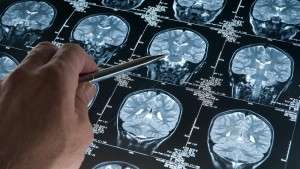 It can seem like there’s a new Alzheimer’s “breakthrough” almost every day. We sift through the headlines and pull together the relevant, reputable research updates for you. Here are 7 things you should know about Alzheimer’s and dementia research from the last month.
It can seem like there’s a new Alzheimer’s “breakthrough” almost every day. We sift through the headlines and pull together the relevant, reputable research updates for you. Here are 7 things you should know about Alzheimer’s and dementia research from the last month.
To learn about Alzheimer’s research in San Diego County, click here or contact Alzheimer’s San Diego at 858.492.4400.
1. Report: Long-sought blood test for Alzheimer’s in reach
Researchers are closer than ever to developing a simple blood test to diagnosis Alzheimer’s disease – a resource doctors and patients have been seeking for years. According to a new study presented in late July, a newly-developed blood test was just as accurate as a PET scan in detecting the tau protein, a key marker for Alzheimer’s. Read more >>
2. Negative thinking linked to dementia in later life, but you can learn to be more positive
In a study published to Alzheimer’s and Dementia, researchers at University College London found that patterns of repeated rumination or worry were associated with declines in cognition and memory. Anxiety and depression have been linked with subsequent dementia in earlier studies. In this analysis, researchers studied 292 adults over age 55 with an elevated risk of dementia in the PREVENT-AD cohort, and an additional 68 people from the IMAP+ neuroimaging cohort. Over 2 years, participants completed the 15-item Perseverative Thinking Questionnaire (PTQ), a self-reported measure to identify repetitive negative thinking. They also completed questionnaires to assess depression and anxiety symptoms.
Over a 4-year period, people with higher repetitive negative thinking patterns experienced a faster decline in global cognition, immediate memory, and delayed memory. People with higher repetitive negative thought patterns also were more likely to have amyloid and tau deposits. Relationships remained after adjusting for potential confounders. Depression and anxiety were associated with subsequent cognitive decline, but not with amyloid or tau deposition.
Researchers suggest the link between repetitive negative thinking and Alzheimer’s biomarkers may be the stress pathway. “Repetitive negative thinking is associated with indicators of stress (e.g., elevated blood pressure, cortisol) and has been called a behavioral marker of chronic physiological stress,” they wrote. This is the first study showing a biological relationship between repetitive negative thinking and Alzheimer’s pathology and gives physicians a more precise way to assess risk and offer more personally-tailored interventions. More research is needed to be able to determine the implications of these findings, but it does add to research that mental health is an important consideration in promoting overall health – our thoughts can have a measurable positive or negative biological impact.
One thing that’s important to note that researchers in the past have found that it’s possible to train the brain to be more positive. Using direct measures of brain function and structure, one study found it only took 30 minutes a day of meditation practice over the course of two weeks to produce a measurable change in the brain.
Read more at CNN, MedPageToday, and Science Daily. Read the study here.
3. New medicine, Tauvid, helps early detection of dementia
On May 28 2020 FDA approved the first drug to image tau pathology in patients being evaluated for Alzheimer’s disease. Tauvid, developed through Eli Lily and Co, is a radioactive diagnostic agent for adult patients with cognitive impairment who are being evaluated for Alzheimer’s disease. After injected, a patient will wait an hour until it circulates around and then you have a pet scan and it shows the buildup. It shows the buildup of these tangles through all the stages of Alzheimer’s. This intervention can detect tangles even in the earliest stages of the disease before symptoms are detected, improving the possibility of early intervention.
The safety and effectiveness of Tauvid imaging were evaluated in two clinical studies. In each study, five evaluators read and interpreted the Tauvid imaging. The evaluators were blinded to clinical information and interpreted the imaging as positive or negative. The most common adverse reactions in patients using Tauvid were headache, injection site pain, and increased blood pressure. Tauvid is not indicated for use in the evaluation of patients for chronic traumatic encephalopathy (CTE).
Amyloid PET scans have been used to diagnose Alzheimer’s before – however, typically they are assessing for clumps of amyloid in the brain, so there is some subjectivity in determining if the amount of amyloid clumps warrants an Alzheimer’s diagnosis – this intervention more specifically highlights TAU build-up, lending more accuracy to a PET scan. It must be pointed out, PET scans are very expensive and this treatment is not — at least not yet — covered by insurance.
Read more at 10 News, Healio, and Neurology Live. Read the FDA’s memo here
4. ACADIA Pharmaceuticals submits supplemental new drug application to FDA for NUPLAZID
In fall of 2019, it was reported that Phase 3 clinical trials for Nuplazid were showing effectiveness in double-blind and placebo-controlled tests. Nuplazid was being tested to treat dementia-related psychosis, which no other drug was doing – no psychosis drugs have been approved yet specifically for dementia-related diagnoses. The study, called the HARMONY study, met its primary endpoint, demonstrating that pimavanserin significantly reduced the risk of relapse of psychosis by 2.8 fold compared to placebo.
Before, Nuplazid was only approved to treat Parkinson’s related psychosis – not dementia. A “Supplemental New Drug Application,” or sNDA, is an appeal to the FDA to allow labeling on a drug, or essentially, approval for the drug to treat a certain set of issues – it is the last step in FDA approval for a drug treatment
Read more at Arcadia-Pharm, Parkinson’s News Today.
5. Long term dietary flavonoid intake associated with lower risk of Alzheimer’s disease
A study published in the American Journal of Clinical Nutrition suggests that consuming more flavonoid-rich foods, such as berries, apples, and tea, may help protect against developing Alzheimer’s disease and related dementias. The study examined 2,800 people aged 50 and older, and the long-term relationship between eating foods containing flavonoids and the risk of Alzheimer’s disease (AD) and Alzheimer’s disease and related dementias (ADRD). Previous studies had examined the relationship before, the time periods were relatively short, while this one spanned over 20 years. Flavonoid intake was examined through questionnaires and medical assessments.
Low intake of three specific flavonoid types was associated with higher risks of developing Alzheimer’s disease and other dementias. Low intake of flavonols (apples, pears, and tea) was associated with twice the risk of developing ADRD. Low intake of anthocyanins (blueberries, strawberries, and red wine) was associated with a four-fold risk of developing ADRD. Low intake of flavonoid polymers (apples, pears, and tea) was associated with twice the risk of developing ADRD
A similar study was published in January also highlighting the protective factor in flavanol intake. Read more at Institute of Food Technologists, WebMD and Healthline. Read the study in the American Journal of Clinical Nutrition.
6. Mind Window app now accepting participants
“Mind Window” is a new research app developed by psychologists at the University of Arizona to study thought and emotion. The app is a part of a research project to develop a large international database of thinking in daily life. The purpose of this study is to discover how patterns of everyday thinking relate to factors such as age, personality, wellbeing, health, and other behaviors. Ultimately, developers hope the data collected through the app will help researchers better predict, track, and treat health-related challenges such as mental illness and Alzheimer’s disease.
How it works:
- User will be asked to complete anonymous surveys about demographic characteristics, typical thoughts, personality, beliefs, health, and behaviors; and daily ‘experience check-in’ questions
- The basic questionnaires at the beginning of the app take roughly 10 minutes to complete and responding to each check-in survey takes approximately 1 to 2 minutes.
- User may complete additional questionnaires to provide a more complete picture of perspective and experiences.
- Once the user responds to 12 notifications, they’ll be given FitBit-like charts showing how thinking patterns change over time.
The data collected in this app will contribute to a body of research linking thinking patterns and psychology to Alzheimer’s Disease risk and progression
Participants can join by downloading the app on the App Store or Google Play. More about the study here.
7. Inflammatory Bowel Disease associated with higher risk of dementia
A study of 19,200 Taiwanese patients found that inflammatory bowel disease (IBD) was associated with a significantly higher risk of developing dementia
Individuals’ health information was gathered over a period of 16 years. The study was done by researchers at UC San Francisco and Taipei Veterans General Hospital in Taiwan The review found that those with (IBD) began showing dementia symptoms just after age 76, versus an average onset at age 83 among those without IBD. The IBD group also was more than twice as likely to develop dementia. IBD can refer to a collection of different disorders, including Crohn’s disease and Ulcerative Colitis, It is estimated that about 3 million Americans are diagnosed with either of these two most common IBD’s
Lead author, Dr. Bing Zhang, theorizes that this observation could have to do with the observed intimate connection between the gastrointestinal tract and the central nervous system. However, Dr. Zhang does stress this study is observational and does not imply a mechanical causation
Read more at UCSF.edu, New York Times. Read the study here.
_____________________________________________________________________________________________________________________________________
To participate in clinical trials here are some links to nationwide registries:
-
Cleveland Clinic Healthy Brains Registry (nationwide)—take an online brain health assessment and learn about brain health studies.
-
Alzheimer’s Prevention Registry (nationwide)—get information and updates about participating in future Alzheimer’s prevention trials.
-
GeneMatch (nationwide)—enroll to get matched to Alzheimer’s genetics studies.
-
Brain Health Registry (nationwide)—sign up for an online study of brain health and learn about possible research-study opportunities.
-
Alzheimer Prevention Trials (APT) Webstudy (nationwide)—enroll to track memory and thinking skills and learn about Alzheimer’s trials
-
ResearchMatch (nationwide)—Matches you with research studies. Researchers need both healthy people and people with all types of conditions
To learn about Alzheimer’s research in San Diego County, click here or contact Alzheimer’s San Diego at 858.492.4400.




